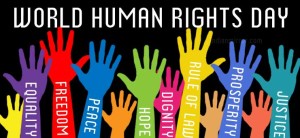Welcome to the HSC Legal Studies Media Guide! We try to be as updated as possible, so we will need your help. If you find a great article that we could add to the list, comment on it over here.
Why use media articles?
In a great essay in Legal Studies, you would include cases, legislation, media and even international documents. The cases support the legislation and the international documents in action. So, why media? The media articles express opinion about the effectiveness of the law on many occasions. Media articles are written by people viewing the legal system and its recent happenings. Using articles both strengthens your understanding of the law in practice but also strengthens your argument in an essay.
Crime:
The Criminal Investigation Process:
Police Powers:
Here is a fact sheet provided by LegalAid.com that explains Police Powers in a basic sense.
This article talks about how recent changes to Police Powers are ineffective for police and citizens. (Opinion piece)
Mike Baird fails to boost police powers in light of terrorism. This article proposes laws which have not been successful.
Comparing NSW Police Powers to South Australia’s can prove very interesting.
Reporting Crime:
Modern Case: George Pell. This highlights the importance of reporting crime even if you are not a perpetrator or victim.
The alarming rate of rejection of genuine crime reports.
A report about crime rates in NSW, “Given that some offences have low reporting rates, it is possible that changes in recorded crime rates over time for these offences may be reflecting changes in reporting rates.”
Bail or Remand:
New bail laws in force.
The implications of remand for a particular individual.
Bail and Illegal Firearms legislation, in the wake of the Lindt Café Siege.
Rights of Suspects, detention or interrogation:
Implications regarding the right to silence.
Now, police give a warning that using the right to silence may harm your defence.
Criminal Trial Process:
The Adversary System:
Pointing out the flaws in our system, comparing to the European model.
Pleas, charge negotiation:
Judges dismayed by the extent of charge negotiations.
Use of Evidence, Including Witnesses:
Farah Jama was wrongfully accused and convicted of a sexual assault that he did not commit. Despite an alibi, no CCTV footage showing the man in the location of the alleged crime, he was convicted on the basis of DNA contamination.
The role of juries:
Are juries a waste of time?
Playing on Juror’s prejudices.
Judge only case: Simon Gittany.
Sentencing and Punishment:
Aggravating and Mitigating circumstances:
Kiesha Abraham’s mother experienced similar abuse as a child. This is accepted as a mitigating factor.
The role of the victim in sentencing:
Families can deliver impact statements to be considered by the judge in sentencing:
Circle Sentencing:
A one-stop article for Circle Sentencing, including success stories.
2008, a little dated – regarding the effectiveness of Circle Sentencing.
Post Sentencing Considerations:
–Sexual Offenders Registration:
Proposed laws for Sexual Offenders Registration.
-Deportation:
A recent case can be found here.
Stateless man: Robert Jovicic.
Young Offenders:
Age of Criminal Responsibility:
You can use this site to find out the age of criminal responsibility around the world.
Did you know that the UN accepts that any age of criminal responsibility below 12 is inappropriate?
The rights of children when questioned or arrested:
A break down provided by Legal Aid.
The Australian Human Rights Commission and their findings on this.
Children’s Court:
The Royal Commissions findings on improving the privacy of the Children’s Court.
Alternatives to Court:
An example of a Youth Justice Conference at work.
International Crime:
Transnational Crime:
The largest methamphetamine lab in the Southern Hemisphere, busted in Suva, Fiji.
The war in Gaza being taken to the ICC (opinion piece).
Human Rights:
Abolition of Slavery:
Focuses largely on Britain.
Focuses largely on America, this is a history of Abolition.
This is your one-stop shop for all things modern day slavery and human trafficking.
Trade Unionism and Labour Rights:
This is a modern take on labour rights.
Here is the website to the International Trade Union Confederation.
Universal Suffrage:
Film: Suffragette.
A brief history of Suffrage.
Specifically, this is a women’s suffrage history.
Where is suffrage still limited for women?
Universal Education:
Julia Gillard has entered the international scene, as an education ambassador. This is an example of how Australia contributes to human rights.
Your modern case study for this is of course, Malala Yousafzai.
Self Determination:
Comment on I Have a Dream, by an Aboriginal Activist.
Environmental Rights:
The Paris Climate Conference.
Fiji becomes the first country to ratify the Paris Climate Conference outcome.
Promoting and Enforcing Human Rights:
State Sovereignty:
“The nation state is key to peace and prosperity.”
ISIS and State Sovereignty.
The role of the UN:
The UN watching Australia’s human rights breaches.
The Constitution and Human Rights:
Court finds that offshore detention is legal. Is the Constitution in fact not protecting human rights?
Courts and Tribunals:
See above.
Charter of Rights:
Michael Kirby, an Australian human rights lawyer, provides his opinion on a Charter of Rights.
A Charter of Rights was a big discussion in 2009, here is an article from that time.






